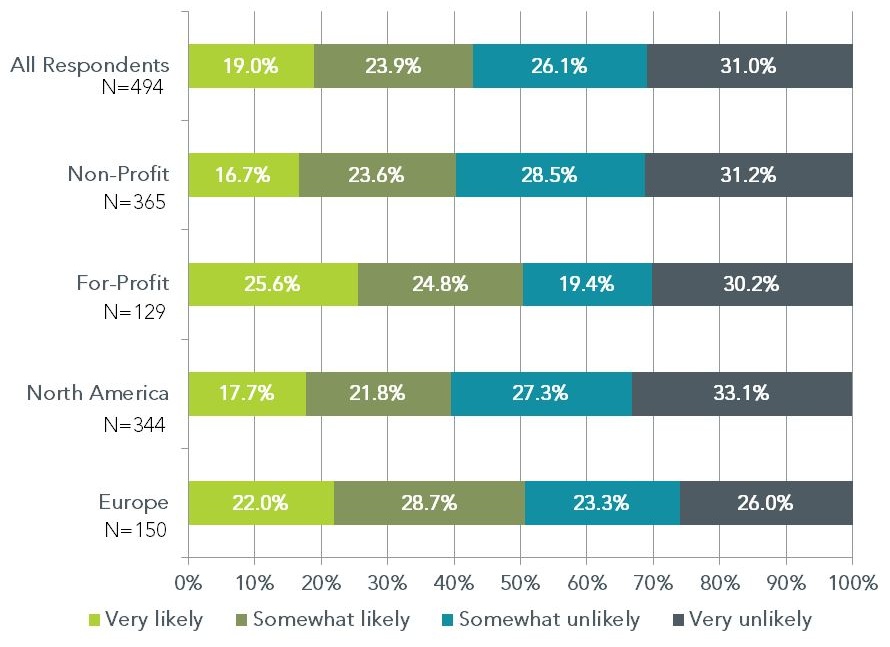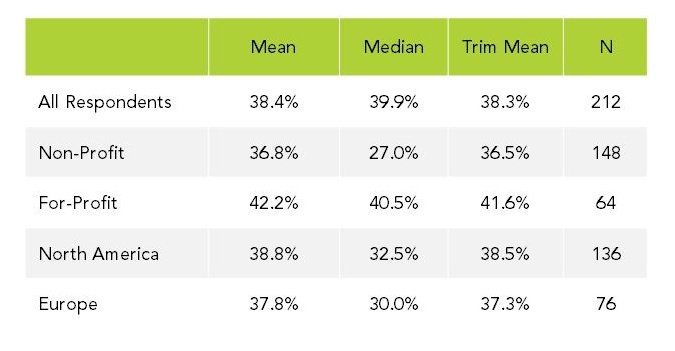With the explosion of biological data now available as a direct result of genome sequencing initiatives, use of commercial gene synthesis and pre-designed synthetic biology tools is becoming increasingly popular. We wanted to understand how molecular cloners feel about using synthetic biology tools as replacements for in-house methods such as cloning. So, in December 2013, we polled users of nucleic acid amplification products in North America and Europe to gauge opinions on their likelihood of using synthetic biology as opposed to molecular cloning to clone genes into vectors in the next 12 to 18 months.
Results show that 40.3% of researchers in non-profit and a whopping 50.4% of researchers in for-profit organizations are “somewhat” to “very likely” to use synthetic biology as opposed to molecular cloning. Analysis of the data by participant location reveals that 50.7% of researchers in Europe and 39.5% of researchers in North America are “somewhat” to “very likely” to use synthetic biology as opposed to molecular cloning. It is significant that there is an approximate 10 percentage point increase in increased likelihood among both for-profit and European researcher segments.
Figure 1:Likelihood of NA and EU life scientists to use synthetic biology as opposed to molecular cloning in the next 12 to 18 months. (Q. “In the next 12-18 months, how likely are you to use synthetic biology as opposed to molecular cloning to clone genes into vectors?”)
We then wanted to understand just how much of their molecular cloning would potentially move to synthetic biology so respondents that indicated they are “somewhat likely” or “very likely” to use synthetic biology in the next 12 to 18 months were further queried about the percent they might switch. Results reveal that molecular cloning is not going away but, on average, researchers anticipate changing 27.0% to 40.5% of their molecular cloning to synthetic biology as shown in the table below.
Figure 2: Percent of molecular cloning that might change to synthetic biology from those likely to use the method in the next 12 to 18 months. (Q. “What percent of your molecular cloning do you anticipate changing to synthetic biology?”)
Does this data intrigue you? Would you like to discuss it? We have a variety of ways to get at core concepts to specifically address researchers habits all over the world. Let us help you collect timely, relevant and unbiased data to support your entry into new markets, such as synthetic biology. Or, if your market is being marginalized by competing technologies we can help you create a roadmap of opportunities.




Leave a Reply